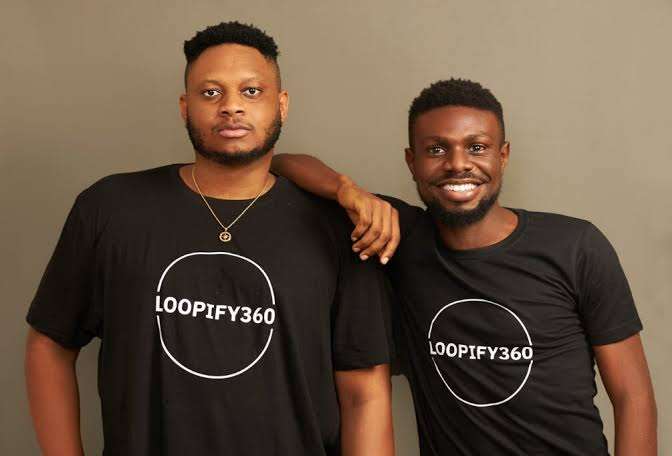Small and medium-sized enterprises (SMEs) make up more than 80% of businesses globally, yet many continue to struggle with one of the most important aspects of growth: marketing.
In Nigeria and across much of Africa, this challenge is compounded by limited budgets, lack of access to talent, and a general absence of marketing infrastructure tailored to the needs of small businesses.
Loopify, a Nigerian startup co-founded by John Alimi (CEO) and Busayo Durojaye (COO), wants to change that.
Describing itself as a “flexible marketing partner” for SMEs, the startup offers a suite of tools that aim to simplify and automate digital marketing for businesses that cannot afford traditional agencies or hire in-house marketers.
“We discovered that one reason why these small brands were not trying channels like podcasts or billboards was because it seemed like something only the big brands could do. Having seen it, we decided to take on the task of solving this problem,” John Alimi, the company’s CEO said.
Understanding Loopify
Loopify’s product stack is designed with affordability, automation, and accessibility in mind. Its core offerings include:
- Nova, a marketplace that connects SMEs with vetted content creators, including video producers and UGC specialists.
- Boost, a managed advertising service that matches businesses with campaign managers who run ads on TikTok, Instagram, Facebook, and Twitter.
- Cre8, an on-demand platform where businesses can request custom social media designs from Loopify’s network of designers.
- Loopify Copilot, an AI-powered copywriting assistant that helps businesses generate ad copy, especially useful for those without in-house creative teams.
Unlike some marketing platforms that bundle services into expensive monthly plans, Loopify allows businesses to pick tools based on their needs and budget.
“From the jump, we were able to get customers to pay a monthly subscription, and that’s when we knew we were addressing a problem that was key for SMEs,” Alimi noted.
Competitive Landscape
Africa’s digital marketing industry is witnessing rapid expansion, with the continent’s advertising market projected to reach $10.28 billion by 2025, and digital channels expected to account for nearly 59% of total ad spend by 2029.
For startups like Loopify, which integrates ad automation, creative services, and payments into one platform, these figures point to a ripe market opportunity.
Loopify operates in a space where global platforms like Canva, Mailchimp, Meta’s Ad Manager, and Fiverr are widely available. But what sets it apart, according to observers, is its local-first, SME-specific approach, combining tech with human support and culturally aware content production.
As of mid-2025, Loopify said it had worked with more than 5,000 businesses across six countries, including Nigeria, Kenya, Sierra Leone, the UK, and the US. Around 22% of users have completed at least one transaction.
It also claims a growing Monthly Recurring Revenue (MRR) of $17,500 and has onboarded over 600 freelance creators to support content delivery at scale.
Loopify is not alone in this pursuit. Startups like Simpu (customer engagement), Klasha (cross-border commerce), and Selar (digital selling) are also trying to streamline small business operations in Nigeria and beyond.
Funding, Traction, and Market Expansion
So far, the startup has raised over $100,000 in funding from DMZ Ventures, angel investors, and Nomba. A key milestone was a partnership with a UK local council, which provided Loopify with a testbed for its advertising solution.
The company has since diversified its customer base to include larger clients such as traveltech firm Wakanow and installment retail platform CDcare.
“When we started out, we were trying to make our prices really affordable because we were counting on volume. We were not really concerned about breaking even from the onset, but with our struggles with raising, we started to rethink our model,” Alimi said.
What Comes Next for Loopify
According to Loopify, its roadmap includes full-scale marketing automation. A new AI product currently in development will eventually allow SMEs to not just plan campaigns but have them executed automatically.
Other upcoming features include an email marketing engine and conversational marketing capabilities across WhatsApp and Instagram.
Looking ahead, Loopify is betting on growth in advanced markets like the US and UK, where the spending power is higher and the value of streamlined marketing solutions is better appreciated.
Still, the company remains committed to serving African SMEs, which it says remain underserved despite making up the backbone of local economies.





